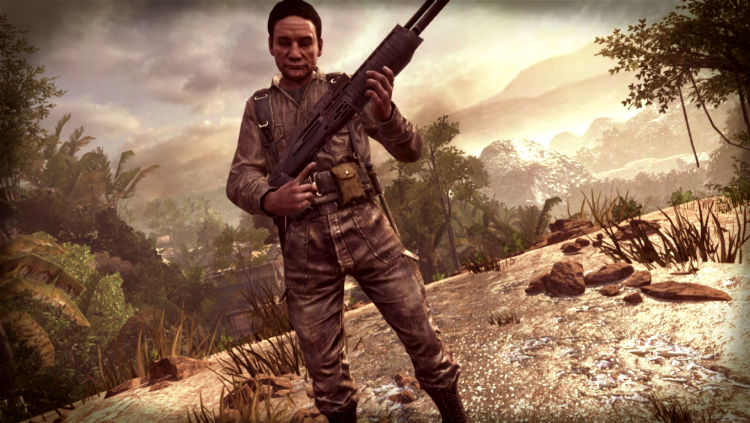Call of Duty games make $1 billion within a few weeks of launch every year. That’s no doubt one reason why former Panamanian military dictator Manuel Noriega sued Activision Blizzard for using his image without paying him royalties in 2012’s Call of Duty: Black Ops II.
Activision said in a press release today that it will file a motion to dismiss the “frivolous” lawsuit by “former dictator and convicted murderer Manuel Noriega.” Former New York City Mayor and U.S. Attorney Rudy Giuliani, who is now a partner at Bracewell & Giuliani, will serve as co-counsel and defend the company on the grounds that Noriega’s depiction in Call of Duty is protected speech.
The company said the motion to dismiss will be filed this morning in the Superior Court of the State of California. It seeks to dismiss the complaint under California’s anti-SLAPP statute, a state provision enacted to protect freedom of speech against spurious lawsuits.
“What’s astonishing is that Manuel Noriega, a notorious dictator who is in prison for the heinous crimes he committed, is upset about being portrayed as a criminal and enemy of the state in the game Call of Duty. Quite simply, it’s absurd,” said Giuliani in a statement. “I’m not interested in giving handouts to a convicted murderer and drug smuggler like Manuel Noriega who is demanding money from Activision and its popular Call of Duty franchise for simply exercising its right to free speech. Noriega’s attack on the rights of Call of Duty comes as no surprise considering he’s a lawless tyrant who trampled over the rights of his own people.”
Activision said in its documents that the stories in the Call of Duty franchise, like many movies and television shows, are ripped from headlines. From the Cold War to World War II and the advanced soldiers featured in the upcoming Call of Duty: Advanced Warfare, the series is fictional but grounded in reality. Call of Duty regularly features characters that are ruthless dictators and iconic villains, such as Fidel Castro and Manuel Noriega, as well as vaunted heroes such as President John F. Kennedy.
Activision argued that, if successful, Noriega’s efforts would give numerous historical and political figures – and their heirs – a veto right over their appearances in works of art, having a chilling effect on movies such as Forrest Gump and Zero Dark Thirty, TV shows such as Saturday Night Live and Boardwalk Empire and beloved books such as Primary Colors (which was seen as a veiled take on the President Bill Clinton) and The Paris Wife.
The former dictator — who was convicted in 1992 for drug trafficking, racketeering, and money laundering — claimed that Call of Duty portrayed him in a negative way.
“[Activision’s] use of [Noriega’s] image and likeness caused damage to the plaintiff,” Noriega alleged in his lawsuit. “Plaintiff was portrayed as an antagonist and portrayed as the culprit of numerous fictional heinous crimes, creating the false impression that the defendants are authorized to use plaintiff’s image and likeness. This caused the defendants to receive profits they would not have otherwise received.”
VentureBeat's mission is to be a digital town square for technical decision-makers to gain knowledge about transformative enterprise technology and transact. Learn More

